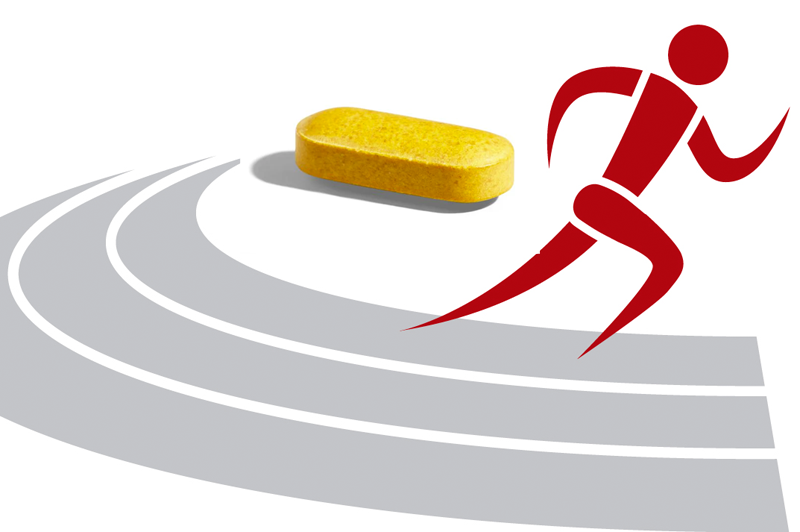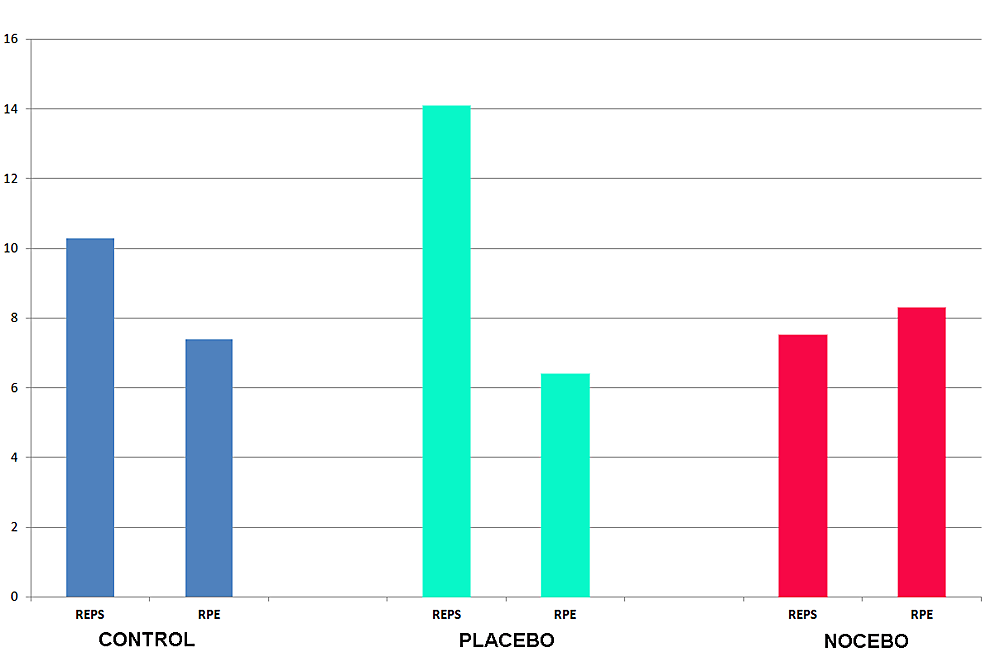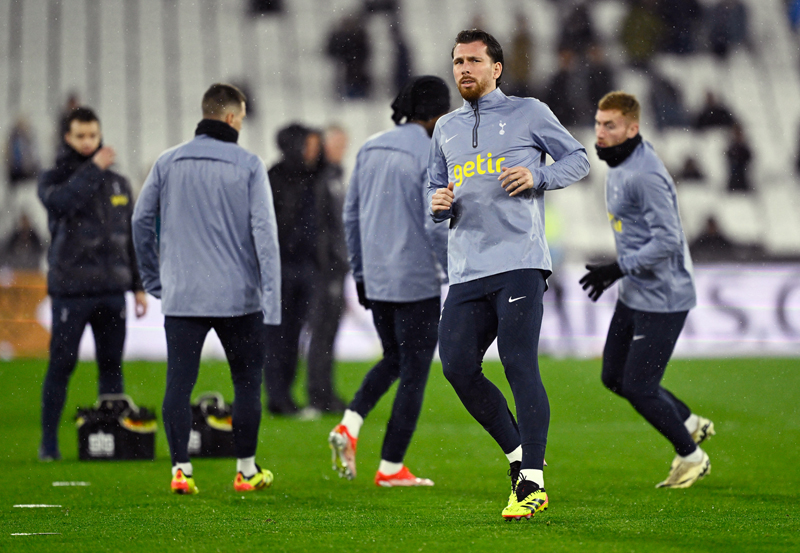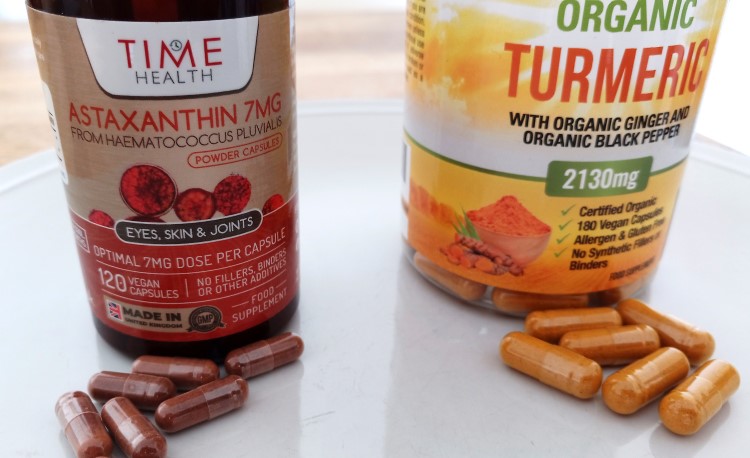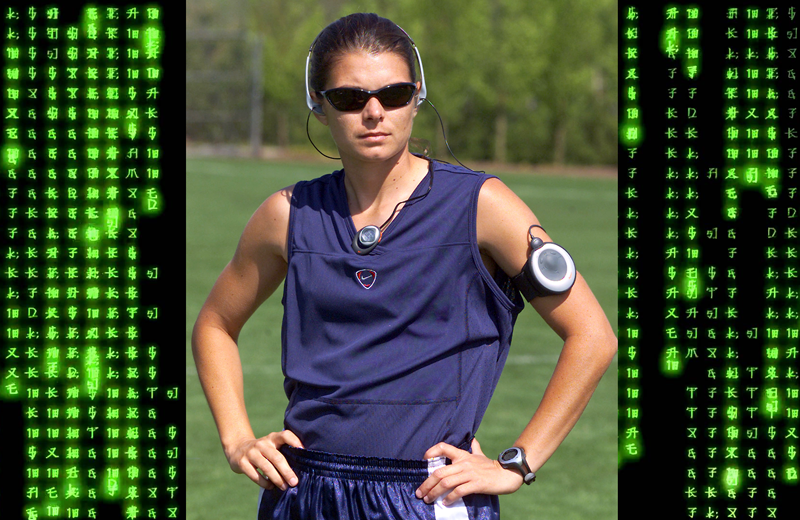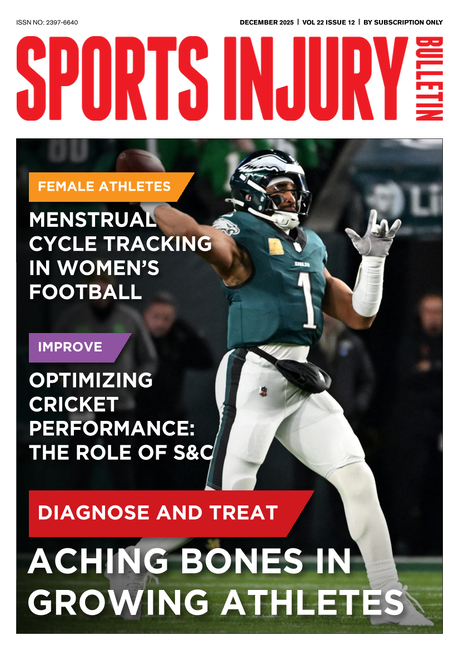Believe it or not: expect to perform well to perform well!
SPB looks at brand new research on sports supplementation, and how your expectations of a supplement will play a significant in determining what benefits you experience
How do you determine whether a sports supplement or any other sports product will significantly enhance your performance? You might think that performing some kind of performance test – for example a time trial – with and without that aid would give you a definitive answer. However, while it sounds logical, there’s more to it than that.
The placebo and nocebo effect
It’s long been known in medicine that the power of positive (and negative) suggestion can provide a real and significant improvement (or worsening) in symptoms. This is the so-called ‘placebo’ or ‘nocebo’ effect. So, when that is the mere belief that a medicine or some other form of treatment will provide benefits, it’s likely it will actually produce some benefits. And these benefits can be had even if that treatment is nothing more than a sham - a completely inert substance that could not possibly benefit the patient in any physiological way. Likewise, the converse is true when a ‘nocebo’ substance or treatment is administered.
The nocebo effect results in a decline in performance due to the mere belief that some kind of intervention or treatment is likely to harm performance, when in fact that intervention is completely inert – having no physiological effect whatsoever. As an example, consider an athlete who experiences a poor performance after having a different and novel kind of cereal for breakfast. Even if that poor performance was down to something else entirely (eg fighting off a low-level virus), he she might conclude and believe that whenever that cereal is eaten in the future, a poor performance is inevitable.
Future performance testing on that athlete would almost certainly find that poorer performances (slower times, higher perceived effort) do indeed occur when that cereal is eaten beforehand, even if that cereal has zero physiological effect on the athlete compared to his/her normal breakfast cereal. That negative effect would almost certainly be as a result of the nocebo effect – ie the belief in a negative effect resulting in a negative effect(1). In short, the placebo effect and its inverse – the nocebo effect – are both very real; when somebody believes that a product will benefit or harm them, their physical performance will reflect this.
Overcoming the placebo and nocebo effect
It’s precisely because of the placebo effect that doctors and scientists need to investigate the potential benefits or side effects of medicines (or other products such as sports supplements) using carefully controlled studies. This means that alongside the medicine, supplement or any other kind of intervention, a control group is used – a group of subjects who go through the same experimental protocol but instead of using the potentially beneficial/harmful medicine/treatment, they are told they’re getting the same treatment but are instead given a completely inert ‘sham’ treatment. Because both groups of subjects experience the same placebo or nocebo effect, you know that any significant difference in outcomes between the ‘real’ group and the control group is not down to the placebo/nocebo effect, but down to the actual treatment.
Placebo vs. no-placebo effects during sports supplementation
In an earlier SPB article, we explored the role of the placebo effect in sports supplementation. What we asked was this: if the placebo effect is real when you give a dummy sports supplement pill or some other kind of treatment, do some of the benefits you receive from a ‘real’ and proven supplement (eg caffeine or creatine) also result from the placebo effect of knowing you are supplementing with a product that has been shown to be effective in previous studies? Put simply, how much of the benefit of creatine, caffeine etc comes from physiological effects and how much comes from the act of ‘taking something’?
It turns out that giving a completely inert pill boosts performance compared to giving no pill or treatment at all, even when athletes understand that the placebo pill could not have exerted any physiological effects whatsoever(2)! The implication of this finding is that even when a sports supplement possesses a real physiological boost to performance, some of that performance boost comes from the mere act of taking a pill. Indeed, it even turns out that the physical characteristics of a supplement and the amount of choice in the decision to take it (ie whether it’s your choice or on the recommendation of a coach/trainer) can determine the extent of the placebo effect you will receive(3,4)!
Placebo vs. nocebo vs. nothing
While the placebo and nocebo effects have been the subject of much scientific study (albeit the nocebo less so), there is little research where both effects have been studied together (ie compared). Moreover, there’s virtually no data on how the placebo and nocebo effects compare to doing nothing (ie where an athlete believes a certain supplement or course of action is completely irrelevant to performance. But now a brand new study just published in the International Journal of Health Sciences by Brazilian scientists has investigated this question in trained men who undertook a muscular endurance performance challenge(5).
What they did
In this study, 15 men experienced in resistance training were recruited (average age 41 years) and were set a task. This task consisted of performing as many bench press repetitions as possible with the resistance set at 80% of each participant’s individual 1-rep max (1RM). This task was repeated once per week over a 3-week period, and on each occasion, the men were given exactly the same supplement around one hour before the task began. This was a completely inert capsule containing 300mgs of cellulose (ie a substance having zero physiological effect). What differed between each of the three trials however was what the men were told the capsule contained and the information given to them. This was as follows:
· Placebo - In one trial, the men were told (deceived) that they were being given caffeine. They were also given comprehensive information via an online lecture about the performance benefits of caffeine and how they could expect to improve their performances.
· Nocebo - In another trial, the men were told (deceived) that they were being given lactic acid. They were also given comprehensive information via an online lecture about how lactic acid intake would likely harm their performances.
· In a third trial, the men were told they were being given cellulose (ie the only trial were they were not deceived!). They were told that this would neither help not harm performance.
Fifty minutes after ingesting the capsule, the participants warmed up with two sets of fifteen (fixed) repetitions bench press at 40% 1RM with 1-minute rest periods in between. After a further 3 minutes, they performed one 80% of 1RM maximal set (until concentric failure) and at the end, they indicated on an image the level of effort performed.
What they found
The results showed that the expectations of the men (ie what they were told was in the capsule) had a very large impact on the result. Bearing in mind that all the men took inert cellulose on each and every occasion – and therefore, the number of reps achieved in each trial and perceived effort should have been broadly the same – the actual results were as follows (see figure 1 also):
· Control (where they were told the truth – ie that they were taking inert cellulose) – 10.3 reps and perceived effort (RPE – measured on a scale of 1-10) 7.4.
· Placebo (where they were told they were taking [helpful] caffeine) – 14.1 reps and perceived effort 6.4.
· Nocebo (where they were told they were taking [harmful] lactic acid) – 7.5 reps and perceived effort 8.3.
The research summed up their findings (quite modestly) as follows: ‘The placebo/nocebo effects observed in this study were quite large: ingestion of placebo resulted in 37% greater performance in repetitions and a significantly lower RPE when compared to control. Ingestion of nocebo resulted in a higher RPE compared to control’. Perhaps even more remarkable is the fact that the placebo trial resulted in just under double (yes double!) the reps achieved in the nocebo trial. This suggests that expectations can play a massive role in actual performance; the performance difference that follows after telling someone they have taken a helpful supplement compared to a harmful substance is absolutely huge!
Figure 1: Average maximum reps achieved and perceived exertion (RPE) in the three trials
Related Files
Implications for athletes
These results are quite startling, and demonstrate the power of the placebo (and nocebo) effect. Would they be equally applicable across all sports? This is by no means certain as the results from other studies looking at endurance performance over 30 minutes’ duration are not quite as stark(6). In this study however, the researchers speculated that briefer exercise stress focused on a smaller area of muscle mass may be more subject to measurable placebo/nocebo effects.
Something else worth bearing in mind is individuality. The placebo/nocebo effect was much more evident in some subjects than others, and it may be that beliefs and expectations are more ingrained in some individuals than others, thereby modifying exercise behavior to different degrees. There is certainly some evidence supporting this theory(7). In the meantime however, what can athletes do to harness the current evidence to best effect? Below are a few simple tips that may help:
· While the evidence for some supplements is weak in clinical trials, if you honestly believe that they work for you, the chances are they will help performance. Maybe a good slice of the extra performance you experience is from the placebo effect, but so what? So long as the supplement in question is relatively inexpensive and healthy (or at least has no health risks), so what?
· Be aware that even if a supplement you take is only delivering a placebo effect, that effect is real, and that you may perform less well if you stop taking it (even if there’s little evidence of a physiological effect!).
· Don’t neglect the nocebo effect either. If you believe that something (a food, a supplement, your running shoes, a pre-race routine etc) is detrimental to your performance, the chances are it will be, so ignore or eliminate it. The same goes for negative thoughts and ideas that might come from others – a good reason why engaging with your rivals on the race start line might not be such a good idea!
· Finally, while it’s great to trick the brain and try and maximize any placebo effect and minimize any nocebo effect, an even better way to guarantee enhanced performance is to use proven ergogenic supplements such as caffeine, creatine and good old carbohydrate! These kinds of supplements have been tested using controlled studies and shown to produce a significant uplift in performance, above and beyond any placebo effect thanks to the physiological benefits they deliver to the exercising body.
References
1. Eur J Sport Sci. 2020;20:279–92
2. Med Sci Sports Exerc. 2021 Aug 1;53(8):1766-177
3. PLoS One. 2018 Jun 11;13(6):e0198388. doi: 10.1371/journal.pone.0198388. eCollection 2018
4. Ann Behav Med. 2022 Oct 3;56(10):977-988
5. Int J Health Sci (Qassim). 2023 Nov-Dec; 17(6): 39–42
6. Sports Med Phys Fitness. 2021;61:1185–92
7. Int J Sports Physiol Perform. 2022;17:333–4
Newsletter Sign Up
Testimonials
Dr. Alexandra Fandetti-Robin, Back & Body Chiropractic
Elspeth Cowell MSCh DpodM SRCh HCPC reg
William Hunter, Nuffield Health
Newsletter Sign Up
Coaches Testimonials
Dr. Alexandra Fandetti-Robin, Back & Body Chiropractic
Elspeth Cowell MSCh DpodM SRCh HCPC reg
William Hunter, Nuffield Health
Keep up with latest sports science research and apply it to maximize performance
Today you have the chance to join a group of athletes, and sports coaches/trainers who all have something special in common...
They use the latest research to improve performance for themselves and their clients - both athletes and sports teams - with help from global specialists in the fields of sports science, sports medicine and sports psychology.
They do this by reading Sports Performance Bulletin, an easy-to-digest but serious-minded journal dedicated to high performance sports. SPB offers a wealth of information and insight into the latest research, in an easily-accessible and understood format, along with a wealth of practical recommendations.
*includes 3 coaching manuals
Get Inspired
All the latest techniques and approaches
Sports Performance Bulletin helps dedicated endurance athletes improve their performance. Sense-checking the latest sports science research, and sourcing evidence and case studies to support findings, Sports Performance Bulletin turns proven insights into easily digestible practical advice. Supporting athletes, coaches and professionals who wish to ensure their guidance and programmes are kept right up to date and based on credible science.
